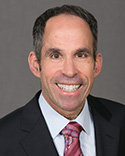(Latest in a series since March on the pandemic’s employment impacts, and rebuilding America’s job base.)
As the vaccine arrives this week, so too do questions from employers regarding the role of the vaccine in the workplace and in return-to-work protocols. Can an employer mandate a vaccination for a worker to return to work? Conversely, can an employer be required to mandate vaccines for a safe workplace? What of workers who refuse to take the vaccine due to a disability, or religious reasons or because they don’t feel safe doing so?
The Equal Employment Opportunity Commission (“EEOC”) and the Occupational Safety and Health Administration (“OHSA”) have yet to issue guidelines on these COVID-19 issues. However, to get insight we can bring in Ms. Eve Klein, the head of the Employment Labor Benefits and Immigration practice group at Duane Morris LLP, who provided legal guidance at the beginning of the pandemic in March (an employment environment that now seems a very distant one). As we noted at the time, Ms. Klein has been in the field of labor and employment law for more than 30 years, and there aren’t many issues that she hasn’t addressed over this time, including during previous public health emergencies.
Below are four prominent issues that employers need to be aware in the coming weeks, and a summary of Ms. Klein’s guidance:
Can an employer require that workers be vaccinated before returning to work?
Though the EEOC and OHSA have not issued a position on employer-mandated COVID-19 vaccination programs (they are expected to do so shortly), in 2009, both the EEOC and OSHA addressed the analogous issue during the H1N1 (“swine flu”) pandemic and found mandatory vaccination programs to be lawful, so long as certain employees are exempt. [...]
What of exemptions on the basis of disability, religious belief, or general concern about vaccinations? […]
While COVID-19 is certainly far more disruptive than H1N1, it is likely employers will still need to provide exemptions to employees based on a disability or sincerely held religious belief. Employers could require employees exempt from vaccination requirements to follow enhanced safety protocols or work remotely if that is feasible. [...]
Can the federal government or state governments require an employer to mandate vaccinations as part of a safe workplace?
[...] But if an employer doesn’t mandate employees be vaccinated when vaccinations are available, and should such employees infect an exempted disabled employee or other employees who refused to be vaccinated, might the employer be in violation of OSHA’s general duties clause to keep employee’s safe from known workplace hazards? [...]
Can states and counties impose vaccine protocols for workplaces, beyond federal requirements? […]
Employers will also need to consider state and local law, which may potentially place additional requirements or restrictions on employers who seek to implement a vaccination policy. [...]
The speed by which immunizations take place in the next months will be the main determinant of the speed of the job recovery in 2021. […] Our best hope for job recovery lies in expediting the processes of distribution, in winning confidence among workers in the safety of the vaccines, and in additional clarifications of protocols and employer liability limits from federal and state governments.
To read the full text of this article by Duane Morris attorney Michael S. Bernick, please visit the Forbes website.









